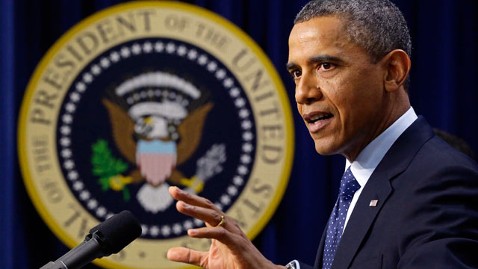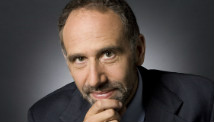STORY HIGHLIGHTS
- NEW: U.S. stocks are expected to rise
- The vote prevents tax increases for more than 98% of Americans
- It also wards off $110 billion in automatic cuts to domestic and military spending
- Reid accused Boehner of "dictatorship" Friday; Boehner responded with profanity
Washington (CNN) -- After exhaustive negotiations that strained the country's patience, the House approved a bill to avert the dreaded fiscal cliff, staving off widespread tax increases and deep spending cuts.
In the 257-167 vote late Tuesday, 172 Democrats and 85 Republicans favored the bill; 16 Democrats and 151 Republicans opposed it.
The approved plan maintains tax cuts for individuals earning less than $400,000 per year and couples earning less than $450,000. It will raise tax rates for those who make more, marking the first time in two decades the rates jump for the wealthiest Americans.
The bill also extends unemployment insurance and delays for two months a series of automatic cuts in federal spending.
World markets rose after the news. U.S. stocks were poised to rise, too.
Just hours before the bill passed, House Speaker John Boehner pitched to fellow Republicans the idea of amending the Senate-approved bill to add a package of spending cuts. He cautioned about the risk in such a strategy, saying there was no guarantee the Senate would act on it.
Rum, electric vehicles and motor sports: Nuggets in the fiscal cliff bill
By the end of the night, he was among the Republicans who voted for the bill as written.
President Barack Obama said he would sign the bill into law, but he did not say when. After the vote, he flew to Hawaii to rejoin his wife and daughters on their winter vacation.
Had the House not acted, and the Bush-era tax cuts expired fully, broad tax increases would have kicked in. In addition, $110 billion in automatic cuts to domestic and military spending would have taken place.
The combined effect could have dampened economic growth by 0.5%, possibly tipping the U.S. economy back into a recession and driving unemployment from its current 7.7% back over 9%, according to economists' estimates.
While the package provides some short-term certainty, it leaves a range of big issues unaddressed.
It doesn't mention the $16.4 trillion debt ceiling that the United States reached Monday.
It also puts off the so-called sequester, cuts in federal spending that would have taken effect Wednesday and reduced the budgets of most agencies and programs by 8% to 10%.
Come late February, Congress will have to tackle both those thorny issues.
Obama warned Congress that he will not tolerate another act of prolonged brinksmanship.
"While I will negotiate over many things, I will not have another debate with this Congress over whether or not they should pay the bills that they've already racked up through the laws that they've passed," he said after the Tuesday night vote.
"We can't not pay bills that we've already incurred. If Congress refuses to give the United States government the ability to pay these bills in time, the consequences for the entire global economy would be catastrophic -- far worse than the impact of the fiscal cliff."
How they voted: House | Senate
A partial victory
While the deal gives Obama bragging rights for raising taxes on the wealthiest Americans, it also leaves him breaking a promise.
Obama had vowed to raise tax rates for the top-earning 2% of Americans, including those with household income above $250,000 and individuals earning more than $200,000.
Raising the threshold for higher tax rates shrinks the number of Americans affected.
While nearly 2% of filers have adjusted gross incomes over $250,000, only 0.6% have incomes above $500,000, according to the Tax Policy Center.
Some House Republicans weren't exactly overjoyed in voting for the plan.
"I'm a very reluctant yes," said Rep. Nan Hayworth, an outgoing Republican representative from New York.
"This is the best we can do, given the Senate and the White House sentiment at this point in time, and it is at least a partial victory for the American people," she said. "I'll take that at this point."
Conservative lobbyist Grover Norquist, whose Americans for Tax Reform pushes candidates to sign a pledge never to raise taxes, said the plan preserves most of the Bush tax cuts and won't violate his group's beliefs.
"The Bush tax cuts lapsed at midnight last night," Norquist tweeted Tuesday. "Every (Republican) voting for Senate bill is cutting taxes and keeping his/her pledge."
The timing of the vote was crucial, as a new Congress is set to be sworn in Thursday. And without a breakthrough, the entire process would have had to start over.
Cliff deal spurs global market rally
Specifics of the plan
The legislation will raise roughly $600 billion in new revenues over 10 years, according to various estimates.
According to the deal:
-- The tax rate for individuals making more than $400,000 and couples making more than $450,000 will rise from the current 35% to the Clinton-era rate of 39.6%.
-- Itemized deductions will be capped for individuals making $250,000 and for married couples making $300,000.
-- Taxes on inherited estates will go up to 40% from 35%.
-- Unemployment insurance will be extended for a year for 2 million people.
-- The alternative minimum tax, a perennial issue, will be permanently adjusted for inflation.
-- Child care, tuition and research and development tax credits will be renewed.
-- The "Doc Fix" -- reimbursements for doctors who take Medicare patients -- will continue, but it won't be paid for out of the Obama administration's signature health care law.
The Democratic-led Senate overwhelmingly approved the bill early Tuesday before passing it to the House.
As news about the fiscal cliff's deflection spread across the world, several markets reacted positively Wednesday.
Australia's ASX All Ordinaries index added 1.2%. South Korea's KOSPI gained 1.5%, and the Hang Seng in Hong Kong advanced 1.9%. Tokyo's Nikkei and the Shanghai Composite remain closed for holiday celebrations but will reopen later in the week.
More fiscal cliffs loom
Payroll taxes still set to go up
Despite the last-minute fiscal cliff agreements, Americans are still likely to see their paychecks shrink somewhat because of a separate battle over payroll taxes.
The government temporarily lowered the payroll tax rate in 2011 from 6.2% to 4.2% to put more money in the pockets of Americans. That adjustment, which has cost about $120 billion each year, expired Monday.
Now, Americans earning $30,000 a year will take home $50 less per month. Those earning $113,700 will lose $189.50 a month.
With the latest battle round over, lawmakers will next set their sights on the other items on their docket of congressional squabbles over money: the debt ceiling and resolving the sequester.
Obama said he hopes leaders in Washington this year will focus on "seeing if we can put a package like this together with a little bit less drama, a little less brinksmanship (and) not scare the heck out of folks quite as much."
He thanked bipartisan House and Senate leaders for finally reaching a resolution Tuesday, but said Congress' work this year is just beginning.
"I hope that everybody now gets at least a day off I guess, or a few days off, so that people can refresh themselves, because we're going to have a lot of work to do in 2013."
Read more: 5 things to know about the fiscal cliff
Angry rhetoric flew
In the tense days leading up to the deal, heated words flew between some Democrats and Republicans.
On Friday, after Democratic Senate Majority Leader Harry Reid accused Boehner of holding a "dictatorship" in his chamber, the House speaker responded with a profanity.
"Go f— yourself," Boehner said to Reid, according to a source with knowledge of the exchange in a White House lobby.
Big issues still pending
Dana Bash reported from Washington, and Holly Yan reported from Atlanta. CNN's Rich Barbieri, Charles Riley, Josh Levs, Dana Ford, Matt Smith, Jessica Yellin, Deirdre Walsh and Ted Barrett contributed to this report.












